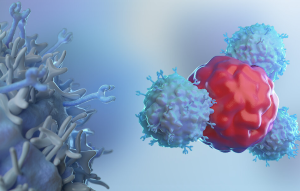Distinguished faculty members from the VinUni-Illinois Smart Health Center (VISHC) have been awarded two major cancer research grants from the Advanced Research Projects Agency for Health (ARPA-H), totaling $54 million. Professors Stephen Boppart, Mark Anastasio, Ravi Iyer, and Minh Do are Principal Investigators (PI) and co-PI’s on both groundbreaking projects, which build an AI-powered imaging system to detect cancerous tissues during surgery and digitally manufacture 3D tumor models for drug testing and personalized treatment. These projects underscore the pivotal role of engineering and technology in revolutionizing cancer detection and treatment.
The first project, Margin Diagnostics (MarginDx), is led by Professor Stephen Boppart and focuses on integrating artificial intelligence (AI) with advanced imaging technologies to enhance cancer surgery outcomes. The team aims to develop a cutting-edge imaging system that can distinguish cancerous from healthy tissue in real time, enabling surgeons to achieve complete tumor removal in a single procedure. By reducing the need for repeat surgeries, this innovation has the potential to improve patient outcomes and reduce healthcare costs significantly.
 (Source: The Robot Report, 2019)
(Source: The Robot Report, 2019)
The second project, Manufacturing Agile and SCalable Organoid Tumor models (MASCOT), is led by Professor Bill King, with Professors Boppart, Anastasio, Iyer, and Do serving as co-PIs. This project leverages digital manufacturing technologies, advanced sensing, and AI to create standardized 3D tumor models, used to replicate instances of cancer outside the body. By growing laboratory tumor models that closely resemble a patient’s cancer, clinicians and researchers can study the efficacy of different treatment options and select the best one.
 (Source: Now Medical Studios, n.d.)
(Source: Now Medical Studios, n.d.)
Both projects highlight UIUC’s and VISHC’s leadership in interdisciplinary research and the crucial role of engineering in transforming medical science. The combined expertise of Professors Boppart, Anastasio, Iyer, and Do exemplifies the university’s and center’s commitment to pushing the boundaries of technology to advance healthcare.
These initiatives demonstrate how engineering and AI can reshape cancer diagnosis and treatment,” said Boppart. “By integrating state-of-the-art imaging and computational methods, we are creating tools that empower clinicians and researchers to make more informed decisions.”
With AARPA-H’s substantial investment, the teams are poised to significantly impact cancer research, bridging the gap between engineering innovation and clinical application. The projects reinforce the importance of cross-disciplinary collaboration in tackling some of the most pressing challenges in modern medicine.